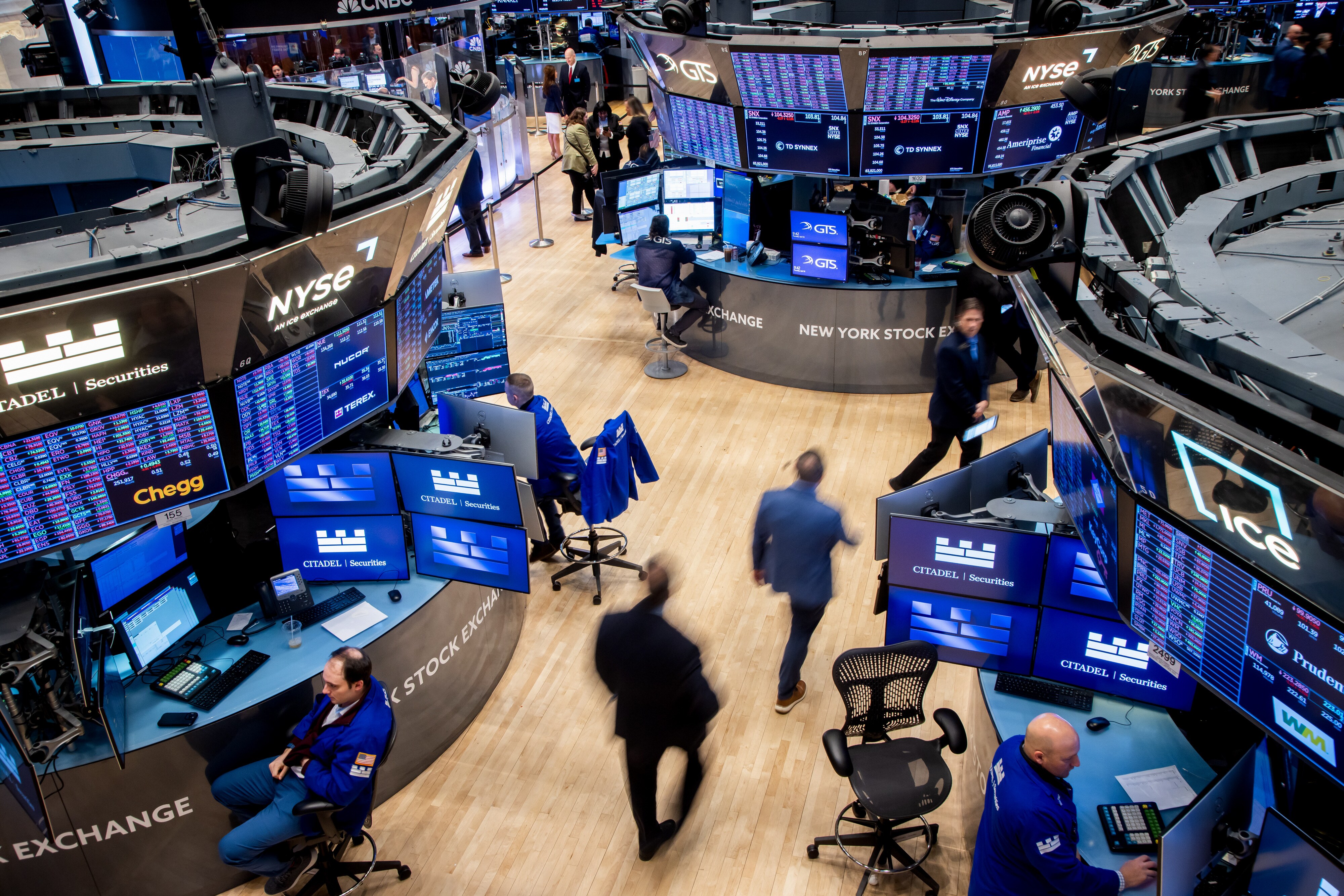
Stocks whipsawed as President Donald Trump's fast-evolving tariff war with top trade partners showed little signs of abating, leaving investors unwilling to take on too much risk after a two-day rally.
That's even as results from Wall Street's financial heavyweights underscored an equity-trading boon and still-healthy consumers and businesses. After climbing almost 1%, the S&P 500 finished lower. In late hours, United Airlines Holdings Inc. stood by its full-year profit outlook, but warned a “recessionary” scenario would erode demand and dramatically lower earnings.

Stocks get boost from Wall Street banks as trade risks linger.
Bonds rose as a Treasury official said a rule change was under consideration that could lower trading costs for banks. The dollar snapped a five-day slide.
Trump called on China to reach out to him to kick off negotiations, indicating no end in sight to fight that has seen both sides raise trade barriers. The Asian nation ordered airlines not to take further deliveries of Boeing Co. jets, according to people familiar with the matter. Meantime, the European Union and US made scant progress bridging trade differences.
“We would advise investors to avoid making hard and fast assumptions about how tariff developments will ultimately play out in the economy and on corporate profits,” said Anthony Saglimbene at Ameriprise. “Instead, we suggest investors prepare for a range of possible intermediate-term outcomes that include slow-to-positive economic and profit growth, and scenarios of slow-to-negative growth.”
High uncertainty surrounding US trade policy and a spike in financial-market volatility has unsettled global investors over the past few weeks. Sentiment regarding economic prospects is the most negative in three decades, yet fund managers' pessimism isn't fully reflected in their asset allocation which could mean more losses for US stocks, a Bank of America Corp. survey shows.
Fund managers are “max bearish on macro, not quite max bearish on the market,” strategists led by Michael Hartnett wrote in a note. “Peak fear” is not yet reflected in cash allocations, they added.
Some of the main moves in markets:
Stocks
The S&P 500 fell 0.2% as of 4 p.m. New York time
The Nasdaq 100 rose 0.2%
The Dow Jones Industrial Average fell 0.4%
The MSCI World Index rose 0.1%
Bloomberg Magnificent 7 Total Return Index fell 0.6%
The Russell 2000 Index rose 0.1%
KBW Bank Index rose 1.2%
Currencies
The Bloomberg Dollar Spot Index rose 0.3%
The euro fell 0.6% to $1.1284
The British pound rose 0.3% to $1.3228
The Japanese yen was little changed at 143.16 per dollar
Cryptocurrencies
Bitcoin fell 1% to $83,970.85
Ether fell 1.6% to $1,608.22
Bonds
The yield on 10-year Treasuries declined four basis points to 4.33%
Germany's 10-year yield advanced two basis points to 2.53%
Britain's 10-year yield declined one basis point to 4.65%
Commodities
West Texas Intermediate crude was little changed
Spot gold rose 0.7% to $3,232.61 an ounce
Essential Business Intelligence, Continuous LIVE TV, Sharp Market Insights, Practical Personal Finance Advice and Latest Stories — On NDTV Profit.























